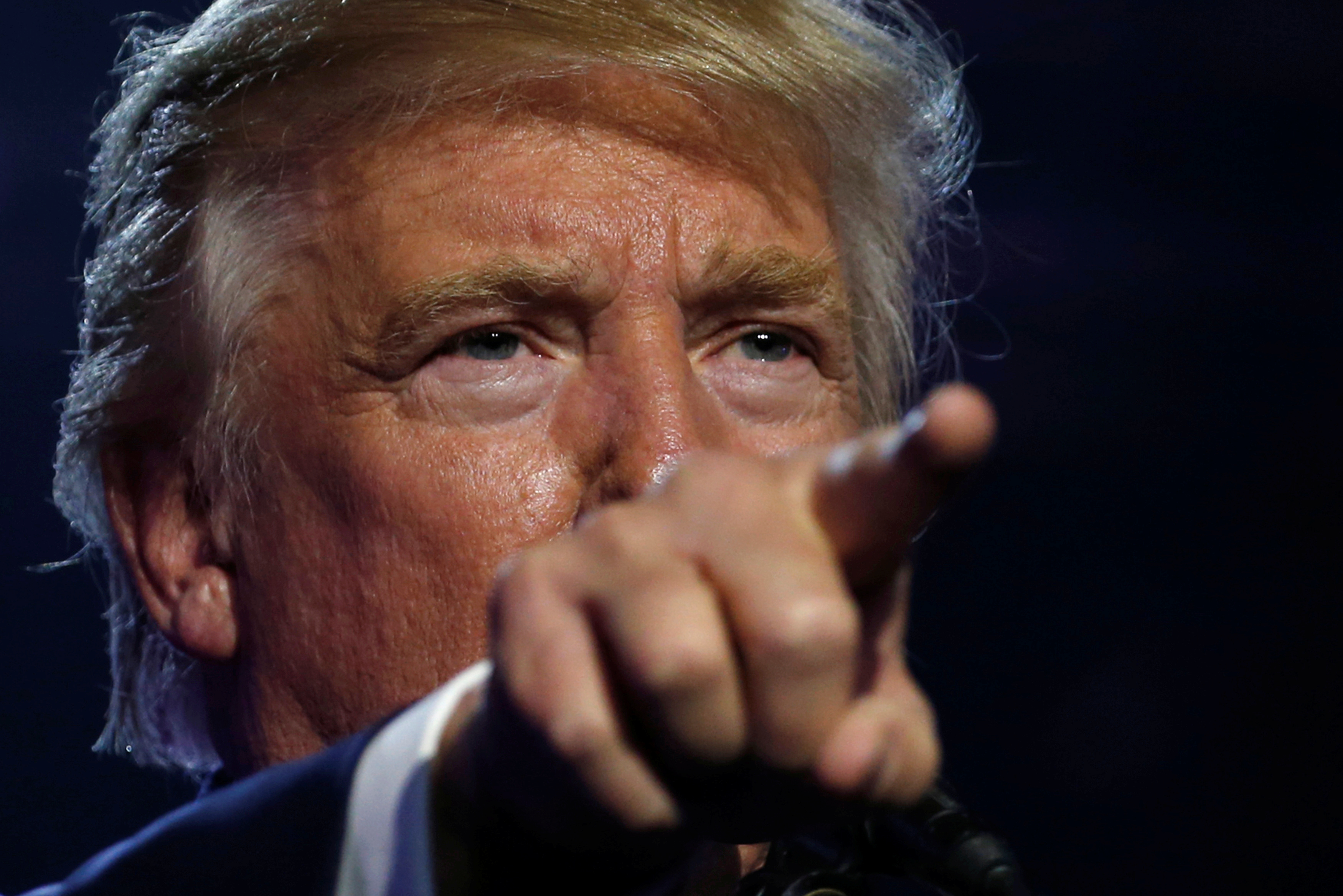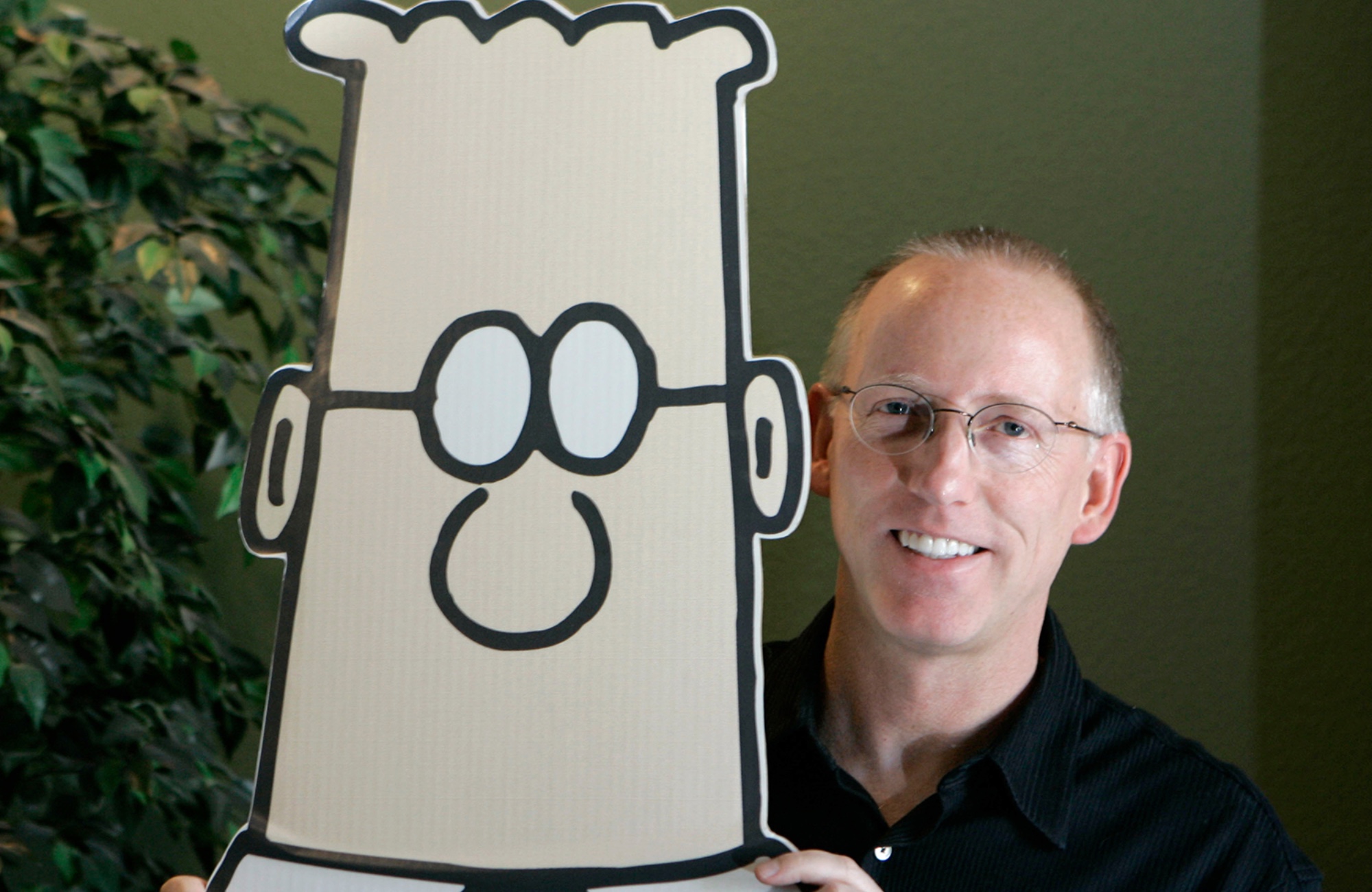Trump's media threats and America's tricky balance on freedom of speech
Donald Trump has inadvertently reminded us why our model of free speech works so well


When a parade of women came forward in the last couple of weeks to say that Donald Trump had kissed or groped them against their will — just as Trump had bragged on that infamous Access Hollywood tape — he was livid. How on earth could news organizations report these allegations when Trump denied them? Sure, he'd sue the women (just to show them who they're messing with), but shouldn't we change the law so the media can't get away with printing mean things about a guy like Donald Trump?
Trump has talked before about his desire to sue media organizations. "I'm going to open up our libel laws so when they write purposely negative and horrible and false articles, we can sue them and win lots of money," he said in February. But last weekend he gave some more detail, explaining how he'd like to model our libel laws on those in Great Britain. And in the process, he's showing that here in America we've gotten the tricky balance inherent in freedom of speech exactly right. Here's what he said:
In England, they have a system where you can actually sue if somebody says something wrong. Our press is allowed to say whatever they want, and they can get away with it, and I think we should go to a system where if they do something wrong — I'm a big believer, tremendous believer in freedom of the press, nobody believes it stronger than me — but if they make terrible, terrible mistakes, and those mistakes are made on purpose, to injure people — and I'm not just talking about me, I'm talking about anybody else — then yes, I think you should have the ability to sue them.
Nobody believes in freedom of the press more than Trump, just like nobody respects women more than he does, and he's the least racist person you've ever encountered. Truly a man of superlatives. But you will be shocked to learn that Trump does not have a firm grasp on the differences between British and American libel laws. In fact, when he says that you should be able to sue when someone says something defamatory about you "on purpose, to injure people," he's inadvertently describing what we have in America.
The Week
Escape your echo chamber. Get the facts behind the news, plus analysis from multiple perspectives.

Sign up for The Week's Free Newsletters
From our morning news briefing to a weekly Good News Newsletter, get the best of The Week delivered directly to your inbox.
From our morning news briefing to a weekly Good News Newsletter, get the best of The Week delivered directly to your inbox.
The most critical difference between American and British libel law is that in Great Britain, if you write something critical about me and I decide to sue you, I don't have to prove that you libeled me; instead, the burden of proof falls on you to demonstrate that you didn't. This imposes an incredibly high burden on defendants, which is why Britain is a common destination for "libel tourism," where someone who wants to shut down criticism sues in British courts, whether they or the defendant are British, or whether the writing in question was even published there.
Right now there's a film playing in theaters that demonstrates the absurdity of this system. Denial dramatizes the case of historians Deborah Lipstadt and David Irving; Irving sued Lipstadt for libel in British courts because she wrote that he was a Holocaust denier, which he most certainly is, even if his version of denial is more complex than that of those who just claim the whole thing was a hoax. In order to defend herself (at a great expense of money, effort, and time) Lipstadt essentially had to prove in court that the Holocaust happened. While Lipstadt won in the end, the fact that the trial took place at all demonstrates just how pathological the British system is.
There's a bargain involved in freedom of speech, one that says that because we want an unfettered exchange of ideas, we're going to have to tolerate some unpleasant things. If I'm going to be free to say whatever I want, I'll also have to put up with you and your stupid opinions. If we don't want the government saying some beliefs are acceptable and others aren't, it means we'll have to tolerate Nazis and Klansmen and all manner of offensive speech. By its very nature, freedom of speech is messy and sometimes unpleasant.
Similarly, if we're going to have a free press, journalists have to be able to say critical things about politicians. That's why the standard we use in America for what kinds of reporting can subject you to a lawsuit comes down to what is called "actual malice," a standard established in a 1964 Supreme Court case. It means that if a public figure like Donald Trump wanted to sue The New York Times for writing that women are accusing him of sexual assault, he'd have to demonstrate in court that either the Times knew what it was writing was false, or acted with "reckless disregard" for the truth.
A free daily email with the biggest news stories of the day – and the best features from TheWeek.com
In that particular case, it doesn't even come close. Trump and these women tell different stories; news organizations simply reported that the women were making the allegations (unquestionably true), and also allowed Trump to dispute them.
Judging by what he's said about this story and so many others, Trump's standard of the difference between what's true and what's false comes down to whether a story is complimentary toward him or not. If it isn't, the story is necessarily outrageous and false, the reporter is a liar and a sleaze, and the laws ought to allow him to sue the news organization for every dime it's worth. Indeed, Trump has sued journalists before, without success. He sued a biographer for saying that his net worth was substantially lower than he claimed (and lost), and he even sued an architecture critic for writing that a building he proposed to erect was "one of the silliest things anyone could inflict on New York or any other city" (that one got summarily tossed out of court).
Now try to imagine what would happen to American journalism if Trump had his way. Every time a politician or celebrity didn't like something someone said about them, they could sue, and in short order no one would want to criticize anyone famous or powerful for fear they could be hauled into court. Free expression would be crippled, and our debate about critical issues would grow smaller and smaller, as the powerful could use the courts to silence critics whenever they pleased. It's one of Trump's more hideous ideas.
If nothing else, Trump has reminded us why our model of free speech works so well — even if it's raucous, unwieldy, and at times upsetting. We've chosen more freedom and more openness, and that's part of why our democracy is so strong. Even Donald Trump can't change that.
Paul Waldman is a senior writer with The American Prospect magazine and a blogger for The Washington Post. His writing has appeared in dozens of newspapers, magazines, and web sites, and he is the author or co-author of four books on media and politics.
-
 Scott Adams: The cartoonist who mocked corporate life
Scott Adams: The cartoonist who mocked corporate lifeFeature His popular comic strip ‘Dilbert’ was dropped following anti-Black remarks
-
 The 8 best animated family movies of all time
The 8 best animated family movies of all timethe week recomends The best kids’ movies can make anything from the apocalypse to alien invasions seem like good, wholesome fun
-
 ICE: Now a lawless agency?
ICE: Now a lawless agency?Feature Polls show Americans do not approve of ICE tactics
-
 The billionaires’ wealth tax: a catastrophe for California?
The billionaires’ wealth tax: a catastrophe for California?Talking Point Peter Thiel and Larry Page preparing to change state residency
-
 Bari Weiss’ ‘60 Minutes’ scandal is about more than one report
Bari Weiss’ ‘60 Minutes’ scandal is about more than one reportIN THE SPOTLIGHT By blocking an approved segment on a controversial prison holding US deportees in El Salvador, the editor-in-chief of CBS News has become the main story
-
 Has Zohran Mamdani shown the Democrats how to win again?
Has Zohran Mamdani shown the Democrats how to win again?Today’s Big Question New York City mayoral election touted as victory for left-wing populists but moderate centrist wins elsewhere present more complex path for Democratic Party
-
 Millions turn out for anti-Trump ‘No Kings’ rallies
Millions turn out for anti-Trump ‘No Kings’ ralliesSpeed Read An estimated 7 million people participated, 2 million more than at the first ‘No Kings’ protest in June
-
 Ghislaine Maxwell: angling for a Trump pardon
Ghislaine Maxwell: angling for a Trump pardonTalking Point Convicted sex trafficker's testimony could shed new light on president's links to Jeffrey Epstein
-
 The last words and final moments of 40 presidents
The last words and final moments of 40 presidentsThe Explainer Some are eloquent quotes worthy of the holders of the highest office in the nation, and others... aren't
-
 The JFK files: the truth at last?
The JFK files: the truth at last?In The Spotlight More than 64,000 previously classified documents relating the 1963 assassination of John F. Kennedy have been released by the Trump administration
-
 'Seriously, not literally': how should the world take Donald Trump?
'Seriously, not literally': how should the world take Donald Trump?Today's big question White House rhetoric and reality look likely to become increasingly blurred
